Hard Money Loan
Introduction: What Are Hard Money Loans?
These types of loans are one of the most popular yet misunderstood financing options for real estate investors. They are often thought as quick cash, high interest rates, and more flexibility compared to traditional loans. The global market for hard money lending reached an estimated $10 billion in 2023. As a result, more and more investors are turning to these loans, especially in competitive markets or when they need to act quickly, e.g a flip. But what exactly are they, and why should you care?
If you’re eyeing a lucrative property deal but traditional financing doesn’t align with your needs, a hard money loan might be your ticket to success. Whether you are flipping homes, purchasing rental properties, or navigating a quick opportunity, hard money loans can provide the agility and speed that banks simply can’t. But they come with their own set of risks and costs. When to consider them in your real estate investment strategy.
What is a Hard Money Loan?
A hard money loan is a short-term, asset-based loan where the property itself works as collateral, unlike traditional bank loans, which are based on creditworthiness. Hard money loans focus primarily on the value of the property you are purchasing or refinancing. This means that approval is often faster and easier, but the cost can be significantly higher.
Hard money loans are typically offered by private lenders or specialized companies, not banks. They’re designed to bridge the gap for borrowers who need fast cash, and are commonly used in situations where conventional financing would take too long or isn’t available. The loan-to-value (LTV) ratio typically ranges from 60% to 80%, and the loan term can vary from a few months to a few years.
Searching for the Right Investment? Find the Best Investment Properties in Miami Dade!
We have the largest property database in South Florida. Find your next investment property here!
- Multi-Family Properties
- Commercial Real Estate
- Land for Sale
But How Do Hard Money Loans Really Work?
Hard money loans work differently from conventional mortgages. Instead of evaluating your credit score, income, or debt-to-income ratio, lenders look at the value of the property. A hard money lender will assess the after-repair value (ARV) of the property—essentially what the property will be worth after any necessary renovations.
For example, let’s say you purchase a distressed property for $150,000, and the ARV is estimated at $250,000 after you make repairs. A hard money lender may offer you up to 70% of the ARV, which would amount to $175,000. This enables you to fund the project without needing to come up with as much upfront capital as you would need with a Bank.
However, the interest rates for hard money loans are generally higher—ranging from 8% to 15%—and there may also be significant upfront fees, such as origination fees or closing costs. The lender typically expects repayment in a relatively short time, usually 12 months or less.
What are Hard Money Loans Used For?
They are predominantly used for real estate investment purposes. Investors often turn to these loans for:
- Fix-and-flip projects: When you need quick access to funds to buy and rehab a property, hard money loans will provide a quick way to access money.
- Rental properties: Investors looking to purchase properties for long-term rental income can use hard money loans, especially when they have a solid property with good cash flow potential but don’t want to go through traditional financing.
- Bridge financing: Hard money loans can serve as a “bridge” for investors who need funds to secure a property but are waiting for longer-term financing.
- Land development: Some developers may use hard money loans to purchase land or secure construction loans.
How Do You Obtain a Hard Money Loan?
You typically don’t need to go through a long approval process. Here’s a step-by-step guide on how you can apply:
- Find a hard money lender: Look for private lenders or specialized hard money lending firms. I can be through a direct referral, online marketplaces, or local real estate investor groups.
- Provide necessary documents: Be ready to provide property details, your plans for the investment, and any relevant financial information about the property, such as estimated repairs or after-repair value.
- Collateral and evaluation: Lender will appraise the property and may perform a walk-through to confirm the value and scope of project.
- Agreement and funds disbursement: Once approved, you’ll receive funds, as well as a repayment schedule.
How Do You Find a Hard Money Lender?
Finding the right hard money lender is crucial to securing a loan that fits your needs. Start by:
- Networking with other investors: Best referrals often come from colleagues or peers in your local real estate community.
- Using online lending platforms: Websites such as Kiavi, PeerStreet, and others can connect you with private lenders.
- Researching local options: Hard money lenders operate in specific geographic areas. You may need to do some digging around to find reputable lenders in your market.
- Checking for reviews: Online reviews and testimonials can provide some insight into a lender’s reliability and customer service.
How Do You Apply for a Hard Money Loan?
Applying for a hard money loan is relatively straightforward, but it does require certain documentation. You won’t be required to submit extensive personal financial records. Instead, lenders will focus on:
- Property details: Location, locatio, Location… condition, and value of property.
- Renovation plans (if applicable): Lenders want to understand what repairs or upgrades will be made and how this will increase the property’s value.
- Exit strategy: A clear plan for repayment, whether through selling the property, refinancing, or other means.
Working With Hard Money Lenders
When you work with hard money lenders, clear communication is key. These lenders may be more flexible than banks, but they can also be more hands-on. Make sure you understand the terms of the loan, including:
- Interest rate
- Fees
- Repayment structure
Be prepared to discuss the project in detail and answer questions about your exit strategy. Most if nto all lenders want to know when and how you plan pay them backd, so come prepared with a solid plan.
Pros & Cons of Hard Money Loans
Pros:
- Speed and flexibility: Hard money loans can be processed quickly, allowing investors to take advantage of time-sensitive opportunities.
- Asset-based lending: Approval is based on the property, not your credit score.
- No prepayment penalties: You can often pay off the loan early without facing additional fees.
Cons:
- Higher interest rates: Interest rates tend to range from 8% to 15%, which is much higher than traditional loans.
- Short loan terms: The repayment period is usually shorter, requiring fast repayment.
- Upfront costs: Expect fees like origination fees and closing costs.
Alternatives to Hard Money Loans
If hard money loans don’t seem like the right option for you, consider these alternatives:
- Conventional financing: For those with good credit and financial stability, traditional loans offer lower interest rates and longer repayment terms.
- Private money lenders: These individuals may offer more flexible terms compared to hard money lenders, often based on a personal relationship.
- Home equity loans: If you own other properties, you might be able to leverage their equity for funding.
- Seller financing: In some cases, the property seller may be willing to finance the deal themselves.
Investment Options
Explore Investment Strategies with the Experts
We connect you with expert advisors and preferred providers to determine the best strategy for your real estate investment goals.
- Purchase Investment Property
- 1031 Exchange
- 721 Exchange / UPREIT
Is a Hard Money Loan Right for My Real Estate Investment Goals?
If your goal is to flip a property quickly or take advantage of a time-sensitive opportunity, a hard money loan may be the perfect option. However, if you’re looking for long-term, low-cost financing, you might want to explore other options.
Carefully weigh your project’s timeline, costs, and risk before committing to a hard money loan. The flexibility and speed are undeniable, but they come with a price.
Final Thoughts: When to Consider a Hard Money Loan for Real Estate Investing
Hard money loans are a powerful tool for real estate investors, offering speed and flexibility that traditional financing can’t match. They are ideal for short-term projects, particularly fix-and-flips or when quick funding is necessary. However, the high interest rates and short repayment terms make them a less-than-ideal solution for long-term investments.
Before moving forward, ensure that the project and the loan terms align with your financial strategy. If used wisely, hard money loans can be a valuable asset in your real estate investment arsenal. But like any financial product, they should be approached with care, diligence, and a solid understanding of the risks involved.
Hard Money Lending Terms & Rates
Hard money lending terms typically range from 6 months to 3 years with interest rates anywhere between **8% and 15%
Contact Us

We are Miami’s largest real-time real estate platform, designed to help you find your dream home, rental or investment property. With cutting-edge tools and comprehensive resources, we make buying, selling, renting, and marketing properties in Miami seamless and efficient. Your perfect Miami property is just a click away!
© 2025 – 2026 Veravitare LLC. All Rights Reserved | Sitemap
Compare listings
ComparePlease enter your username or email address. You will receive a link to create a new password via email.
